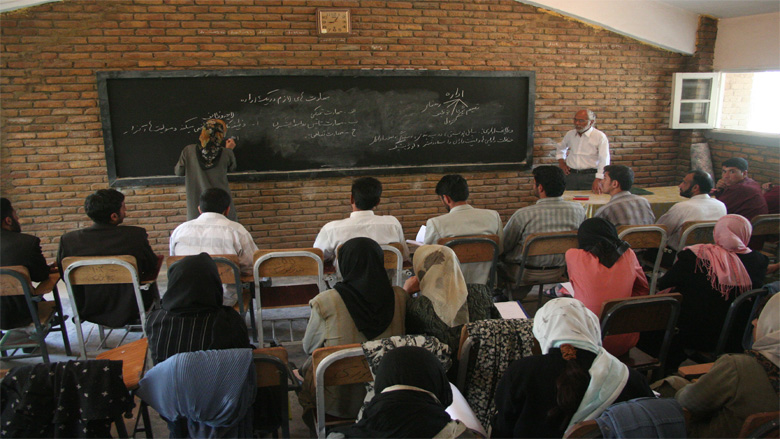BAGHLAN PROVINCE – Becoming a lecturer at Baghlan University was no small achievement for Nargis. She had to clear a very tough competitive examination, but getting the lectureship made it worthwhile. “I was very excited about becoming a lecturer at the university,” says Nargis.
A high performing student, she graduated from the Faculty of Biology and Chemistry only a few years earlier. In 2012, when she started as a lecturer, she had come on-board with a bachelor’s degree. “I had just a BSc degree, no experience, and I was not familiar with the new methods of teaching,” she recalls. Despite her best efforts and academic rigor, she felt herself struggling and decided she needed to upgrade her skills to do justice to her job.
Nargis, who is now 28, is pursuing a master’s degree in natural resources management at the Asian Institute of Technology in Thailand. One of 200 scholarship recipients under the Higher Education Development Project (HEDP), she believes she could not have pursued her dream without the project’s help.
“With HEDP support, I am studying in a good international university in Thailand,” Nargis says. “I have learned a lot and feel my master’s degree will improve my teaching abilities and when I come back to Afghanistan, I will be able to teach my students much more efficiently.”
HEDP aims to increase access to higher education in Afghanistan, as well as improve its quality and relevance. It has been implemented by the Ministry of Higher Education (MoHE) since July 2015, with funding support by the Afghanistan Reconstruction Trust Fund (ARTF). One of the ways HEDP is working to achieve this goal is through capacity building at all levels within the public university system, such as the scholarships for lecturers who want to purse postgraduate degrees to further their academic skills and qualifications.
Afghanistan has 36 public universities and institutes of higher education across the country, most of which were established or re-established only within the past decade. One of the most critical challenges they face is the lack of well-qualified lecturers—as high as around 60 percent of all lecturers in public universities hold only a bachelor’s degree. Based on the MoHE second National Higher Education Strategic Plan, 2016-2020, all university lecturers require at least a master’s degree by 2021.
HEDP is working to change the old system of higher education to a more modern one to increase its relevance and efficacy. “Through HEDP we would like to transform the old and traditional systems that are being used in public universities with a modernized and internationally recognized system, with serious attention to female participation,” says. Noor, director of MoHE.

